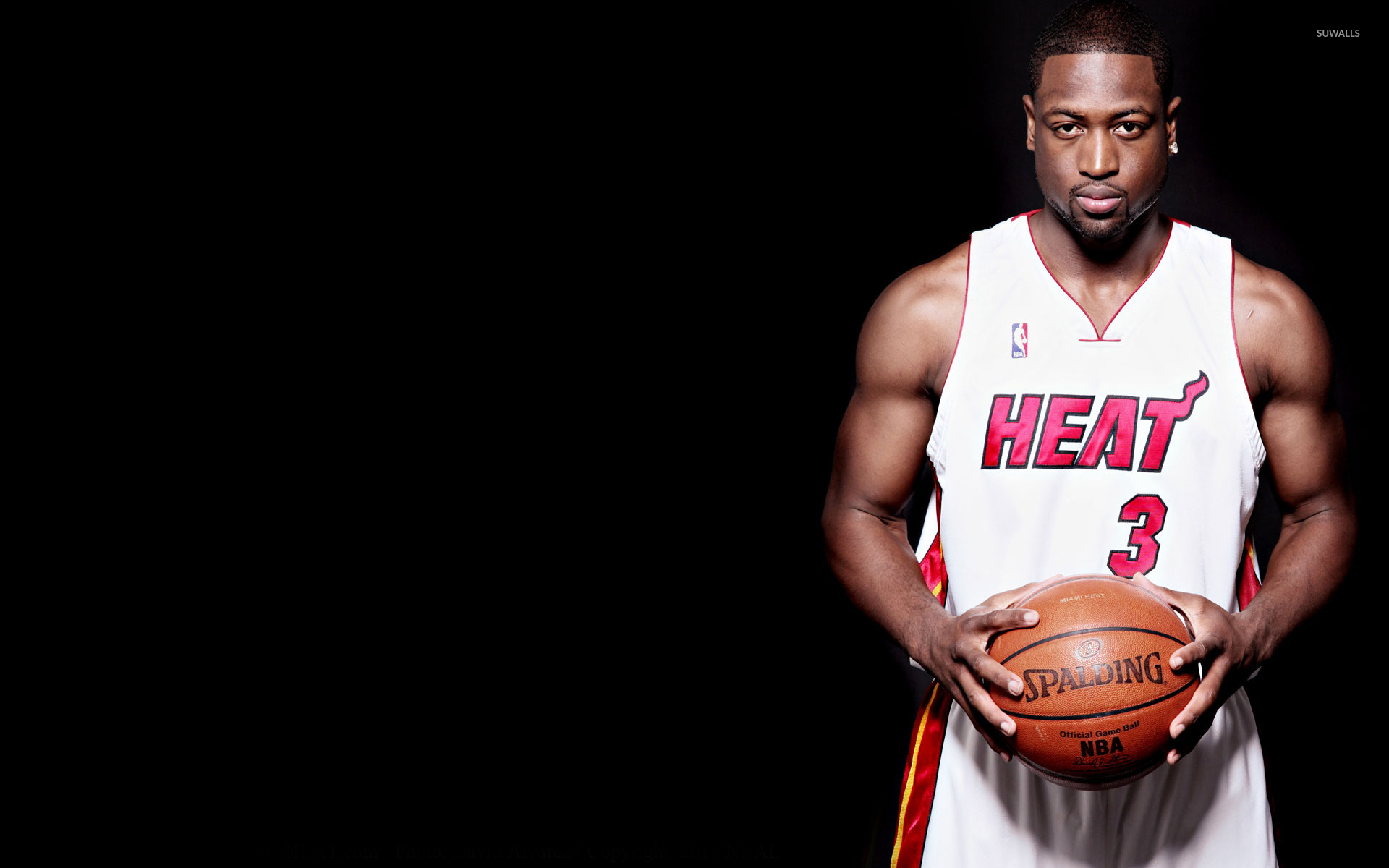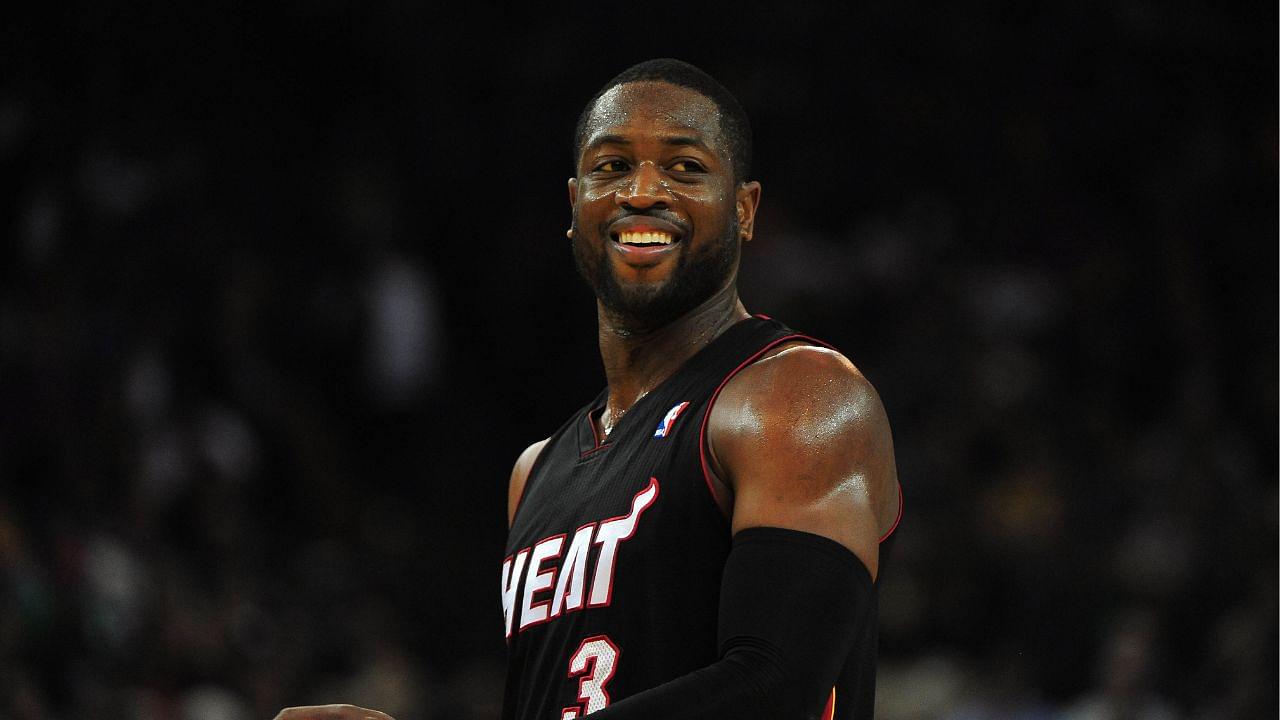
Dwyane Tyrone Wade Jr., the American former professional basketball player widely celebrated for his illustrious career, has reportedly stated that he and his family relocated from Florida. The reason cited for this significant move was a feeling of not being accepted, specifically mentioning anti-trans discrimination directed towards his daughter, Zaya. This declaration adds a deeply personal dimension to the public persona of a man whose journey has long been intertwined with overcoming challenges and advocating for various causes.
Wade’s life began in Chicago, Illinois, on January 17, 1982, marked by early adversity. He was the second of two children born to JoLinda and Dwyane Wade Sr. The family’s beginnings were described as “trying” in the South Side of Chicago, with his parents separating when he was merely four months old.

Custody of Wade and his older sister Tragil was granted to their mother, JoLinda, who grappled with drug addiction and periods of incarceration. At eight years old, Tragil ingeniously led Dwyane to believe they were attending a movie, only to bring him to live with their father and stepmother. This pivotal moment shaped much of his formative years, though he maintained occasional visits with his mother until his father’s relocation of the family to Robbins, Illinois, which led to a two-year period without seeing her.
Amidst these personal trials, Wade found solace and direction in sports, turning to basketball and football as a means to circumvent the pervasive temptations of drugs and gangs in his environment. He credited his sister, Tragil, as the most influential figure in guiding him toward a positive path. During his burgeoning basketball career, on October 14, 2001, his mother, JoLinda, vowed to transform her life, reportedly ceasing drug use by 2003.

His high school athletic journey unfolded at Harold L. Richards High School in Oak Lawn, where he initially distinguished himself as a wide receiver and backup quarterback in football. Basketball success, however, took longer to materialize. A significant four-inch growth spurt by his junior year transformed his basketball prowess, as he emerged as the team’s leader, averaging 20.7 points and 7.6 rebounds.
Wade’s exceptional improvement persisted into his senior year, where he posted remarkable averages of 27 points and 11 rebounds. He guided the Bulldogs to an impressive 24–5 record and a Class AA Eisenhower Sectional appearance, etching his name in school history with records for points scored (676) and steals made (106). Wade profoundly acknowledged coach Jack Fitzgerald as a seminal and profoundly positive influence on his development, yet his low ACT scores limited his collegiate basketball recruitment to only Marquette, Illinois State, and DePaul.
Committing to Marquette University in Milwaukee, Wisconsin, under the guidance of coach Tom Crean, Wade’s collegiate start was momentarily hindered by NCAA Proposition 48, which dictates academic eligibility for Division I sports. Through dedicated effort and tutoring, his academic standing improved sufficiently, enabling his eligibility by the commencement of his sophomore year, marking a critical step in his career.
During the 2001–02 season, his sophomore year, Wade immediately made his mark, leading the Marquette Golden Eagles in scoring with 17.8 points per game. He also distinguished himself by leading Conference USA in steals per game with 2.47 and two-point field goals made with 205. His all-around contributions were evident in his averages of 6.6 rebounds and 3.4 assists, helping Marquette achieve a 26–7 record, their best since the 1993–94 season.
:max_bytes(150000):strip_icc():focal(959x518:961x520)/gabrielle-dwayne-2-5ad5889515d84646bdb246d7bd72e609.jpg)
The 2002–03 season witnessed Wade once again spearheading the team in scoring, averaging 21.5 points, as the Golden Eagles concluded with a 27–6 record. A particularly poignant moment occurred on March 8, 2003, when his mother, JoLinda, witnessed him play basketball for the first time in five years, just three days after her release from prison. Marquette secured the Conference USA title with a 70–61 upset victory over the Cincinnati Bearcats in that memorable game.
Wade’s leadership propelled the Golden Eagles to the Final Four, a feat not achieved since their 1977 national championship season. His exceptional performance earned him a coveted spot on the All-America First Team by the Associated Press, making him the first Marquette basketball player to receive such an honor since 1978. His display during the Midwest Regional final garnered widespread national acclaim.
Against a formidable top-seeded Kentucky team, Wade delivered a stunning performance, tallying 29 points, 11 rebounds, and 11 assists, including a highlight-reel breakaway dunk. Marquette’s 83–69 upset victory advanced them to the Final Four for the first time in over two decades. This triple-double was only the fourth ever recorded in NCAA tournament history, solidifying his status as a burgeoning star.
The Golden Eagles concluded their season ranked No. 6 in the AP Poll, marking Marquette’s highest ranking since the 1976–77 season. Wade’s individual brilliance was recognized with the MVP award of the Midwest Regional, and his exceptional performance significantly elevated his NBA draft projection. Consequently, he opted to forgo his senior year, entering the 2003 NBA draft with considerable anticipation.

On February 3, 2007, Marquette University honored Wade by retiring his No. 3 jersey, a rare exception to their usual policy requiring student-athletes to have graduated for such a distinction. This gesture underscored his profound impact on the program, cementing his legacy at the collegiate level even before his professional career fully matured.
Selected fifth overall in the 2003 NBA draft by the Miami Heat, Wade immediately distinguished himself as the highest-ranked of only four Marquette first-round draft picks. He quickly established himself as a productive force, averaging 16.2 points on 46.5% shooting, complemented by 4.0 rebounds and 4.5 assists during his rookie campaign. The Heat, initially struggling with a 5–15 start, progressively improved to conclude the season with a 42–40 record, securing a playoff berth.
Wade’s postseason debut was marked by outstanding performances, particularly against the Indiana Pacers during the Eastern Conference Semifinals. His impactful rookie season earned him a unanimous selection to the 2004 NBA All-Rookie Team, and he finished third in the Rookie of the Year voting, trailing only LeBron James and Carmelo Anthony. He ranked among the top five rookies in multiple statistical categories, including second in field goal percentage, second in steals, third in scoring, fourth in assists, and fourth in minutes played.
In the opening playoff game, Wade delivered a dramatic moment, sinking a running jumper with just 1.3 seconds remaining to secure an 81–79 victory over the New Orleans Hornets. After winning that series 4–3, the Heat advanced to face the top-seeded Indiana Pacers, holding the NBA’s best regular-season record. Despite Wade’s efforts, Miami ultimately lost the series 4–2, yet he notably became only the fourth rookie in the shot clock era to lead his team in both points and assists during the postseason.

The 2004–05 season marked a significant turning point for the Miami Heat with the acquisition of center Shaquille O’Neal from the Los Angeles Lakers. This pivotal trade transformed the team, leading to a remarkable 17-game improvement over their previous season’s record, culminating in a 59–23 finish and the top seed in the Eastern Conference. Wade’s burgeoning stardom was recognized with his selection as a reserve for the season’s All-Star Game, where he contributed 14 points in 24 minutes of play.
In the first round of the 2005 playoffs, Wade’s dominance was on full display as he averaged 26.3 points, 8.8 assists, and 6 rebounds per night, maintaining an impressive 50% field-goal percentage, guiding the Heat to a sweep of the New Jersey Nets. The second round saw him elevate his game further, averaging 31 points, seven rebounds, and eight assists per game as Miami swept the Washington Wizards. Despite these heroic efforts, the Heat ultimately fell 4–3 in the Eastern Conference Finals to the defending champions, the Detroit Pistons.
Wade’s resilience was tested in that series; he scored 42 points in Game 2 and 36 points in Game 3 despite battling sinusitis, the flu, and a knee strain. A strained rib muscle suffered in Game 5 unfortunately sidelined him for Game 6 and significantly limited his effectiveness in the decisive Game 7, underscoring the physical toll his high-intensity play exacted.
The 2005–06 season saw Wade elected as an All-Star Game starter, where he continued to showcase his talent, scoring 20 points on an efficient 9-of-11 shooting in 30 minutes of play. He concluded the regular season with stellar averages of 27.2 points, 6.7 assists, 5.7 rebounds, and 1.95 steals, cementing his status as one of the league’s premier guards. His consistent performance set the stage for a memorable postseason run.

In the initial round of the 2006 playoffs, the Miami Heat faced the Chicago Bulls, a series that saw Wade endure several injuries, including a severely bruised hip in Game 5. Despite intense pain, he scored 15 of his 28 points in that critical game, propelling the Heat to a 3–2 series lead. He then guided the Heat past the Detroit Pistons, even battling flu-like symptoms in Game 6, where he contributed 14 points and 10 assists in the series-clinching contest.
The pinnacle of the 2006 season arrived in the NBA Finals, where Miami confronted the Dallas Mavericks. Trailing 0–2 in the series, Wade’s monumental performances in Games 3, 4, and 5, scoring 42, 36, and 43 points respectively, powered the Heat to a 3–2 series advantage. His 42 points in Game 3 tied his playoff high, and his 13 rebounds established a new career high, demonstrating his all-encompassing impact.
The Heat ultimately triumphed in Game 6, securing the series 4–2, largely on the strength of Wade’s 36 points in the decisive contest. This championship earned him the coveted Finals MVP trophy, making him the fifth-youngest player in NBA history to achieve this distinction. His average of 34.7 points in the Finals stood as the third-highest among players in their first NBA Finals appearance, and his 33.8 player efficiency rating (PER) was ranked by John Hollinger of ESPN as the best since the NBA-ABA merger.




